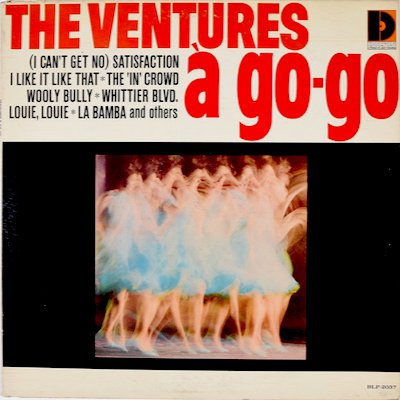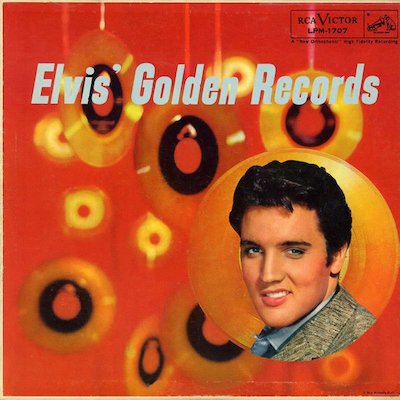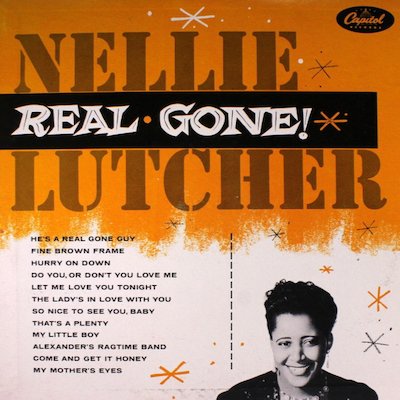Dec. 30, 2022
My musical education began at home. My parents were not too involved in music themselves, but they liked it a lot. Mom played a little piano and they both enjoyed singing and had nice voices. They sang around the house often, and in church. When I was a little kid they used to play records and dance the Twist in the living room. I always liked that.
So there was a record collection in the house, though it was a bit of a hodge-podge. My dad was a salesman and hated to pay retail for anything, so most of his records came from the bargain bins. He likes upbeat music that he can snap his fingers to, and listened to a lot of Motown, soul, and R&B. My mom’s musical tastes back then leaned more toward light classics, musicals, and country-tinged pop singers. They both liked Tom Jones. They also had an album by my mom’s high school friend Bobbe Norris, a torch singer of jazz and bossa nova standards (still actively performing as of a few years ago). I was so impressed that they actually knew someone who had made a record!
In a way, that was my formative musical experience. As I entered my teens our tastes diverged, of course – it was so not cool to listen to the same music as your parents – but when I got into my twenties I came to appreciate their musical interests more, and I managed to abscond with some of their records, many of which I still enjoy. So here are my Top Ten favorites from their collection. (Click the linked song titles to listen.)
OK, I admittedly haven’t listened to this in years, but one of my favorite albums was Ventures À Go-Go, especially the song “Whittier Boulevard,” which has this goofy intro with shouting voices and honking horns. I amused myself by playing it at the wrong speeds, or spinning it by hand at random speeds or backwards to make the voices sound funny, which was my first experience of sound as something malleable, that could be physically manipulated. I probably ruined that record with all of my physical manipulations. It was also a kind of foreshadowing of my eventual move to Washington (the Ventures hailed from Tacoma).
Brook Benton was a singer and songwriter whose career hovered somewhere in the zone between R&B and pop music, akin to Roy Hamilton or Jackie Wilson. He had a big hit in 1970 with “Rainy Night in Georgia,” but we were listening to him long before that. This album had a lot of kind of kitschy numbers that appealed to me as a kid. The one that stuck with me the most is “Hit Record,” which I still dig out now and then. Solid advice for anyone wanting to break into the music biz.
Speaking of Jackie Wilson, this album was the soundtrack to many living room dance parties in our house. I confess I don’t remember too many songs beyond the title track and “Say You Will,” which was the big hit. But with a little nudge from Van Morrison I eventually checked into Wilson again when I got older. Without a doubt, my personal favorite is his over-the-top melodrama “No Pity (in the Naked City)”. It’s not on this album, but this album led me to it.
I’m not sure why we had an 8-track tape of the original Broadway cast recording of Hair. My confusion stems from the fact that my parents were the exact antithesis of hippies. Maybe they enjoyed the cover version of “Aquarius” by The Fifth Dimension. (I happen to love Three Dog Night’s version of “Easy to Be Hard”, easily the best song from the musical. And “Frank Mills” is pretty good, too.) It’s also possible they got this in an effort to connect with me, and to assure me that they were at least a little hip. They even took me to see the play in Los Angeles! (1972?) But honestly, I was only about ten when this came out, and a lot of it went over my head at the time. I’m not sure how much cred it had with actual hippies. My sense is it was a form of cultural tourism for squares, intended to make piles of money off of them. In any case, we had the tape, it got listened to a lot, and I can probably still sing along with most of it.
Another tape that got a lot of play in the car was Equinox, by Sergio Mendes & Brasil 66. This was both my first encounter with the word “equinox” and with Brazilian music, not to mention the Portuguese language, which I later studied. Granted, it was kind of a diluted, gringo-friendly version of Brazilian music, but it was an entry point that I followed up on much later. And really, it wasn’t so different than the bossa nova stuff that inspired it. Pretty sexy, too, in its way. As a gateway to Gilberto and Jobim and Cole Porter, Mendes gets the job done.
To be clear, all of Elvis’ early (post-Sun) hits are here, and they are still great. But you also have to bear in mind that by the time I was a teenager and really started listening to music and digging through my parents’ records, Elvis was not cool. He was still idolized by people the same age as my parents (old!), but he no longer seemed particularly relevant to anyone under 40. However, just a few years later I was able to hear this stuff with less jaded ears, and lo, it was mostly very good. I’m especially fond of the tear-jerker ballad “Love Me.” But sorry, nothing here beats the Sun Sessions version of “Blue Moon.”
My dad just loves him some Ray Charles, and it rubbed off on me. Even as a wee lad I knew he was a genius. There are tons of Charles compilations, but this was the first one and it is indeed packed with great hits from his ABC years (the earlier Atlantic sides are another kind of greatness entirely). My two favorites here were kind of outliers in his catalog. “I’m Gonna Move to the Outskirts of Town” has a killer arrangement by Quincy Jones and was recorded with members of Count Basie’s big band at Rudy Van Gelder’s studio. Then there’s the eternally prescient angst-ridden blues downer “The Danger Zone,” originally released as the B-side of “Hit the Road, Jack.” This one works as the soundtrack to pretty much every day of my life.
I don’t ever recall hearing my parents play this record, and I never noticed it until one of my later raiding expeditions. Nellie Lutcher was an excellent pianist and singer, more on the jazz side of things than the R&B side, though she did have some crossover success. Originally from Lake Charles, Louisiana, she moved to Los Angeles in 1935 where she gigged as a pianist and singer, started her brief recording career, worked with Nat King Cole, and did some TV. Nina Simone later claimed her as an influence. She specialized in songs that were a little racy, but not too racy. Plenty of goodness here, but the clear stand out is “Fine Brown Frame,” an excellent early musical depiction of the female gaze directed upon the Black male body. That little orgasmic scream of delight about halfway through just kills me every time.
I love this album unironically. I know it looks like just another cheesy Easy Listening record from 1957, but it is much more than that. First, it’s Les Paul, who more or less invented the modern electric guitar, and multi-track recording. Second, his wife Mary was not only an excellent second guitarist, but had a very appealing come-hither voice. If you like a seductive chanteuse like Julie London, then try Mary Ford. Third, this entire album consists of nothing but super slow, sultry ballads (for which I am a sucker), about half with vocals and half instrumentals. The instrumentation is all electric guitars all the time, and the recording quality is pristine. Proceed directly to “Moonlight and Shadows” to get in that Tropical Island Mood.™
When I was in my 20s I found a box of old 45s in my parents’ garage. Most of them had belonged to my mom when she was in high school. I was surprised at how hip her collection was. It was hard for me to imagine that someone who loved John Denver and Barbra Streisand was ever into Clyde McPhatter & the Drifters, LaVerne Baker, Ruth Brown, Johnny Ace, Amos Milburn, Little Willie John, or Nappy Brown. And a few years ago I found her old scrapbooks with reviews of some of these records that she’d written for her school newspaper. One of the more obscure items was the B-side of “W-P-L-J” by the 4 Deuces – a fabulously dark and gritty blues called “Here Lies My Love” by the mysterious Mr. Undertaker, aka Roy Hawkins. I don’t know why he recorded this under a pseudonym. Hawkins was a fixture on the East Bay blues and R&B scene, but stopped performing when he was injured in a car wreck and lost the use of one arm. The Ace label has released a couple of compilation CDs of his various singles, which are quite good but they don’t include this one. This remains my favorite of all my parents’ records.









